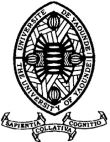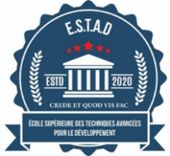Information For Authors
Why Choose Health Research in Africa?
- Transparent Process : We are committed to maintaining a transparent and rigorous peer-review process.
- Expert Reviewers : Our reviewers are experts in their fields, ensuring high-quality feedback for authors.
- Timely Decisions : We strive to provide timely decisions to help authors advance their research.
Interested in submitting to this journal?
We recommend that you review the About the Journal page for the journal's section policies, as well as the Author Guidelines. Authors need to register with the journal prior to submitting or, if already registered, can simply log in and begin the five-step process
HRA Open Access license agreement
Articles published in HRA are Open Access and distributed under the terms of the Creative Commons Attribution 4.0 International (CC BY CC ND 4.0), which permits others to distribute, remix, adapt, build upon this work, provided the original work is properly cited, the use is non-commercial and if you remix, transform, or build upon the material, you may not distribute the modified material, and the authors retain the copyright and full publishing rights over publication. Full HRA Open Access license agreement is identical to the creativecommons.org/licenses License
Duties and responsibilities of authors
Authors are generally defined as persons who have contributed sufficiently to a scientific report to be listed on the byline of the published report. Inappropriate types of authorship include guest authorship, honorary or gift authorship, and ghost authorship. Machine Learning and Artificial Intelligence (AI) tools (such as ChatGPT or chatbots) should not be listed as authors because a non-human cannot be responsible or accountable for the accuracy, integrity, and originality of the work, and these responsibilities are required for authorship AI assisted tools are unable to hold or transfer copyright.
Confidentiality. The author-editor relationship is founded on confidentiality. Authors should hold all communication between themselves and the journal in confidence
Originality. The authors should provide a statement attesting to the originality of the study they have submitted for consideration.
Disclosures. Authors have a responsibility to be forthright when complying with journal submission requirements. This entails disclosure about the originality of the content, a statement of an author’s actual contribution to the study, and financial and conflict of interest disclosures.
Copyright. HRA uses a licensing agreement in which the authors retain certain rights on their work. However, the content in question must be original and not otherwise under copyright elsewhere (in whole or in part). Authors should ensure that the study under consideration is original and does not contain plagiarized content. In addition, authors must avoid duplicate publication, which is reproducing verbatim content from their other publications.
Multiple Submissions. Generally, it is not acceptable for authors to submit the report of a study to several journals at the same time, including a manuscript undergoing peer review that has not been formally rejected by the original journal to which the manuscript was submitted.
Data Sharing. Data sharing is the practice of making data used for scholarly research available to other investigators. Authors should be aware of their data sharing responsibilities imposed by their funding agencies.
Human Subjects Research. HRA requires formal affirmation that human subject’s research on which a submission is based was approved by an institutional review board (IRB) or complied with the Declaration of Helsinki and/or its local equivalent. The researchers must have conducted the study according to the approved protocol and acceptable research standards, including having obtained informed consent of study subjects. HRA editors may request a copy of the IRB determination letter during manuscript submission. Additionally, authors should obtain written informed consent from the subjects of case reports and written permission to use any identifiable images.
Animal Research. HRA requires formal affirmation that any research involving animals was approved by an animal care and use committee and was conducted according to the approved protocol and acceptable research standards for animal experimentation.
Peer review process
Initial Check
- Scope
- Format, overall quality of language, tables & figures, reference style
- Plagiarism
Assign a “Reviewer”
- Compliance with aim and scope of Journal
- Scientific validity and quality of redaction
- Ethical requirements
Reviewers’ Opinions
- Reports are sent to author and corrected version is examined
- Manuscript is accepted and the final version is sent to editors or rejection and notification to author
Final approval – Editorial Office
- Edited article is reviewed by Chief Editor for final approval
Acceptance and Publication
- Galley proof sent to the author for Proof Reading
- Final corrections by Author










